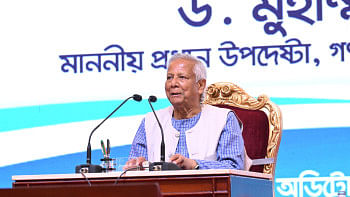Turkish parliament votes today to end ban on headscarf
Turkish lawmakers vote today on a constitutional reform to end a ban on Islamic headscarves in universities, an issue that has divided the Muslim country.
But while the measures have angered secularists on the one side, they have failed to satisfy devout women who don the headscarf on the other.
Wednesday's first-round vote in parliament is certain to approve the constitutional amendments, since the ruling Justice and Development Party (AKP) has won the backing of the opposition Nationalist Action Party.
The two will easily garner the two-thirds house majority required to amend the code.
Lawmakers will hold a final vote on the measure on Saturday.
The AKP, the offshoot of a now-banned Islamist party, has long opposed the ban on wearing the headscarf in universities, arguing that it violates both freedom of conscience and the right to education.
But the project has angered secularists -- among them the army, the judiciary and academics -- who see the headscarf as a symbol of defiance against the fiercely guarded separation of state and religion.
They fear that easing the restriction will put social pressure on women to cover up and pave the way for a gradual lifting of a similar ban in public institutions, such as government offices and high schools.
More than 125,000 people demonstrated against the project Saturday at the mausoleum of Mustafa Kemal Ataturk, who founded Turkey on the principle of secularism.
In the latest warning to come from the secular camp, the vice-president of the country's Appeals Court, Osman Sirin, said the reform would weaken "the principle of secularity which constitutes a founding value of the Republic."
But Turkish Prime Minister Recep Tayyip Erdogan, a former Islamist whose wife and daughters wear the Islamic headcover, said it was a question of basic human rights.
"What we are doing is allowing people to use their right to education. We want all our citizens to enjoy basic rights and freedoms," he said in a televised speech to a meeting of the AKP parliamentary group Tuesday.
"We stand by all our citizens, regardless of their political convictions and life styles," he added. "Nobody has the monopoly on the principle of secularism."
Assuming the reform is adopted in Saturday's final voting, it will have to be approved by President Abdullah Gul, who was Erdogan's number-two before he was elected head of state in August.
Gul, whose wife and daughter have also never been seen in public without the headscarf, has yet to veto any law forwarded to him by the government since coming to office.
On Tuesday, he appeared to back off from a previous suggestion that he could seek a referendum on the issue of headscarf reform.
"I do not find it right to hold a referendum on issues related to basic rights and freedoms," he said in televised remarks.
The strictly secular main opposition Republican People's Party (CHP) has already said it will challenge the reform in court, arguing that "the secular Republic is in danger".
Last week, leading academics warned that lifting the ban would lead to chaos and clashes in universities and added that some women academics would boycott classes if the bill was passed.
The threat triggered a harsh reponse from the AKP: "They can either resign or retire," the party's deput chairman Dengir Mir Mehmet Firat said in remarks published in newspapers.

 For all latest news, follow The Daily Star's Google News channel.
For all latest news, follow The Daily Star's Google News channel. 



Comments